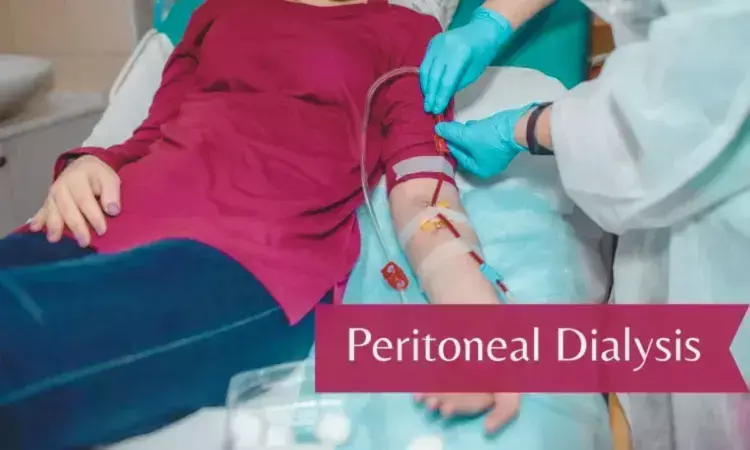- Home
- Medical news & Guidelines
- Anesthesiology
- Cardiology and CTVS
- Critical Care
- Dentistry
- Dermatology
- Diabetes and Endocrinology
- ENT
- Gastroenterology
- Medicine
- Nephrology
- Neurology
- Obstretics-Gynaecology
- Oncology
- Ophthalmology
- Orthopaedics
- Pediatrics-Neonatology
- Psychiatry
- Pulmonology
- Radiology
- Surgery
- Urology
- Laboratory Medicine
- Diet
- Nursing
- Paramedical
- Physiotherapy
- Health news
- Fact Check
- Bone Health Fact Check
- Brain Health Fact Check
- Cancer Related Fact Check
- Child Care Fact Check
- Dental and oral health fact check
- Diabetes and metabolic health fact check
- Diet and Nutrition Fact Check
- Eye and ENT Care Fact Check
- Fitness fact check
- Gut health fact check
- Heart health fact check
- Kidney health fact check
- Medical education fact check
- Men's health fact check
- Respiratory fact check
- Skin and hair care fact check
- Vaccine and Immunization fact check
- Women's health fact check
- AYUSH
- State News
- Andaman and Nicobar Islands
- Andhra Pradesh
- Arunachal Pradesh
- Assam
- Bihar
- Chandigarh
- Chattisgarh
- Dadra and Nagar Haveli
- Daman and Diu
- Delhi
- Goa
- Gujarat
- Haryana
- Himachal Pradesh
- Jammu & Kashmir
- Jharkhand
- Karnataka
- Kerala
- Ladakh
- Lakshadweep
- Madhya Pradesh
- Maharashtra
- Manipur
- Meghalaya
- Mizoram
- Nagaland
- Odisha
- Puducherry
- Punjab
- Rajasthan
- Sikkim
- Tamil Nadu
- Telangana
- Tripura
- Uttar Pradesh
- Uttrakhand
- West Bengal
- Medical Education
- Industry
Dyslipidemia in CKD: Beyond Glucose Absorption in Peritoneal Dialysis, suggests study

Researchers have found in a new study that glucose absorption from peritoneal dialysis may not independently drive dyslipidemia development. Instead, dyslipidemia in chronic kidney disease is linked to multiple factors, particularly alterations in the peritoneal membrane. Further studies are required to clarify the underlying mechanisms. The study was published in BMC Nephrology by Gokhan A. and fellow researchers.
Atherosclerotic cardiovascular disease continues to be the most common causes of morbidity and mortality among patients on peritoneal dialysis and hemodialysis for end-stage renal disease. Dyslipidemia is the key player in this process, and preventing it is a top strategy for minimizing cardiovascular risk.
The current study sought to assess dyslipidemia among peritoneal dialysis patients and investigate if glucose uptake from dialysis solutions was directly proportional to lipid profile changes. There were 73 patients seen in the nephrology outpatient clinic who were included in the study. Lipid profile results, the nature of the dialysis solution employed, and the nature of the solutions were examined through the patients' records. Statistical calculations were then conducted to determine correlations between glucose uptake and lipid parameters.
Key Findings:
• Sample size: 73 peritoneal dialysis patients.
• Correlation: There was a statistically significant negative correlation between glucose absorption and HDL cholesterol level.
• This correlation held true both for the peritoneal dialysis group as a whole and, in particular, for the subgroup of patients undergoing automated peritoneal dialysis (APD).
• Other lipid parameters: No correlation was found between glucose absorption and other lipid variables like LDL cholesterol, total cholesterol, or triglycerides.
• Main implication: Glucose concentration in dialysis fluids per se was not a main driver in the determination of dyslipidemia in all measures of atherogenic lipids.
The research concluded that the glucose concentration of peritoneal dialysis fluids by itself does not explain the occurrence of dyslipidemia when all atherogenic lipid profiles are considered. Peritoneal dialysis patient dyslipidemia is rather to be evaluated by taking into consideration various factor contributions, in addition to dialysis effects and peritoneal membrane structure and function status. The above findings underscore the importance of looking at management of cardiovascular risk in peritoneal dialysis patients from a much broader perspective.
Reference:
Aydin, G., Topal, C., Konur, K. et al. Effects of different peritoneal dialysis solutions on serum lipid levels and lipid profile in end-stage chronic kidney disease patients undergoing peritoneal dialysis. BMC Nephrol 26, 483 (2025).https://doi.org/10.1186/s12882-025-04417-4
Dr Riya Dave has completed dentistry from Gujarat University in 2022. She is a dentist and accomplished medical and scientific writer known for her commitment to bridging the gap between clinical expertise and accessible healthcare information. She has been actively involved in writing blogs related to health and wellness.
Dr Kamal Kant Kohli-MBBS, DTCD- a chest specialist with more than 30 years of practice and a flair for writing clinical articles, Dr Kamal Kant Kohli joined Medical Dialogues as a Chief Editor of Medical News. Besides writing articles, as an editor, he proofreads and verifies all the medical content published on Medical Dialogues including those coming from journals, studies,medical conferences,guidelines etc. Email: drkohli@medicaldialogues.in. Contact no. 011-43720751


